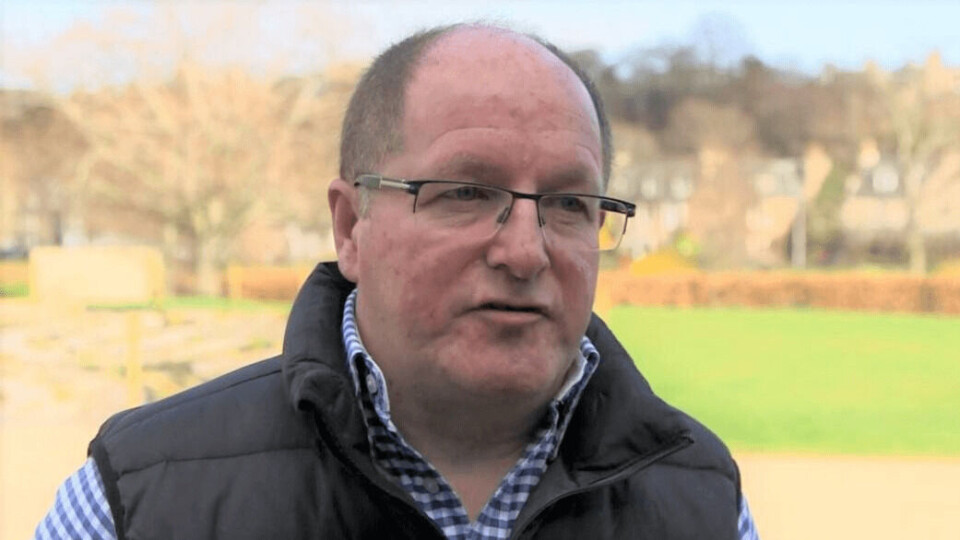
Looking back, thinking ahead: Alex MacInnes
Fish Farming Expert has asked individuals connected to the salmon farming industry about their year, and what they hope for in 2021.We continue the series today with Alex MacInnes, director of Scotland’s newest salmon farmer, Organic Sea Harvest Ltd (OSH).
The Covid-19 pandemic has made 2020 a difficult year for many businesses and organisations. How has it affected yours?
As a start-up business on the cusp of placing our first juveniles into the marine environment, the Covid-19 pandemic affected the manufacture and delivery of our marine infrastructure (namely pen enclosures, nets and our feed barges) which is vital when stock needs to be moved from their freshwater environment to the sea within a strict window of transfer.
But with the strength of our supply partnerships and the dedication and resilience shown by our staff, all came together as one to ensure our first juvenile stock made a successful transfer to the marine environment.
The Covid-19 pandemic has also affected the many aspects of the regulatory framework, including the challenges faced by working from home and the delayed delivery of vital permissions and licences.
What other factors have had a bearing on your business/work?
Not being able to build our proposed third site at Flodigarry (due to refusal of planning permssion) has brought additional challenges to Organic Sea Harvest. We had many applications for employment at the third site and it is incredibly disappointing that we have had to inform potential employees that we could no longer recruit because of this. It also means that we now cannot make the same level of investment into the local community as we have less stock to harvest, and we will spend less in the local fuel station and shops.
What was the most significant event of 2020 for your company/organisation?
We have attracted and recruited the key staff for our current sea sites (with further job opportunities available - we are currently recruiting a chief operations officer). We have firmly established the business on Skye and continue to integrate into the Staffin community, including employing local people and renting local properties for long term staff accommodation. Organic Sea Harvest also now has a dedicated office in Staffin, along with a second office in Portree.
We placed our first juveniles into the marine environment this year, with both the Invertote and Culnacnoc sites now stocked. The fish health inspectorate visited our farms under Covid-19 guidance and gave the business an excellent fish health and welfare rating.
Organic Sea Harvest has also been awarded Soil Association organic certification which means that both sites are now fully organic, conforming to the many robust clauses and criteria for farming which will be continually assessed annually. This process had been delayed due to the Covid-19 pandemic.
What would you like to see happen in 2021 to help the Scottish fish farming industry thrive?
We would like to see the industry grow sustainably and the ball is now rolling within the National Planning Framework 4 (NPF4) which states to support the Scottish food and drink sector by facilitating the development of production and processing facilities. OSH would also like to see significant changes made to the planning and regulatory framework while acknowledging that much of the work is ‘work-in-progress’ - there must be sustainable change to meet the aspirations of the National Planning Framework 4.
Organic Sea Harvest wishes to be part of the sustainable growth of the Scottish finfish and shellfish sectors with our Soil Association-accredited organic salmon. We want to play our part in guiding the industry towards coastal locations that reflect the needs of the industry and take into account the wider marine planning challenges. OSH believes that we can contribute significantly to Scottish aquaculture and the wider supply chains, with particular attention given to the significance of the industry in remote, rural communities. As has already been demonstrated, farmed salmon has one of the lowest carbon footprints by production of the health protein foods market.
We are excited about being part of the industry's growth strategy set within the 2030 vision that aims to double the economic contribution of the sector to a staggering £3.6b and double the sector's employment to 18,000 jobs.
We look forward to working with the Scottish Salmon Producers’ Organisation, all our stakeholders and the Scottish Government's Aquaculture Industry Leadership Group.























































